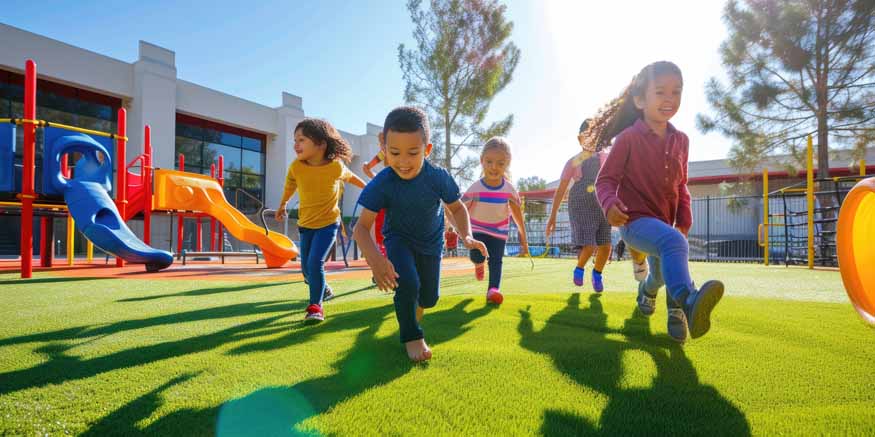Understanding their social circles allows us to support our children effectively and build a more comprehensive network of support. Here are some tips to help parents navigate the terrain of their child’s friendships.
Initiating Conversations
Communication is the cornerstone of any relationship, and when it comes to your child’s friendships, initiating conversations is key. Start by creating an atmosphere where your child feels comfortable sharing details about their friends. Casual conversations during family meals or car rides can open the door to insights about their peer group.
Encourage your child to share anecdotes about their friends’ interests, hobbies, and personalities. By expressing genuine interest, you not only learn more about their friends but also show your child that you value their social connections.
Hosting Gatherings
Organising gatherings at your home provides an opportunity to meet and interact with your child’s friends in a relaxed setting. Consider hosting a movie night, a game evening, or a simple get-together. This allows you to observe how your child interacts with their friends and gain a better understanding of group dynamics.
Ensure your home is a welcoming space where everyone feels comfortable. Providing snacks and activities can break the ice and create an environment conducive to open communication. As your child sees you engaging with their friends, it reinforces the idea that you are interested in their social circle.
Also Read: How to Spend Quality Time with Your Kids: Essential Tips for Busy Parents
Observing Interactions
Sometimes, understanding your child’s friendships requires more than just active participation; it involves keen observation. Pay attention to non-verbal cues, body language, and changes in your child’s demeanour when they are around certain friends. This can provide valuable insights into the dynamics of their relationships.
Be mindful of any signs of peer pressure or discomfort. If you notice any concerning behaviour, address it with your child in a non-confrontational manner, emphasising your support and concern for their well-being.
Social Media Awareness
In today’s digital age, understanding your child’s friendships extends beyond face-to-face interactions. Familiarise yourself with the social media platforms your child and their friends use. This not only helps you stay informed about their online connections but also enables you to guide your child in navigating the digital world responsibly.
Engage in conversations about online safety and responsible social media use. Establishing trust and open communication regarding their online activities fosters a supportive environment for your child to share their experiences and concerns.
Attending Events
School events, parties, and extracurricular activities provide excellent opportunities for parents to connect with their child’s friends. Attend school plays, sports events, and parent-teacher meetings to familiarise yourself with the broader social context of your child’s life.
Interacting with other parents at these events can also lead to valuable connections. Building relationships with the parents of your child’s friends creates a supportive network and strengthens the overall sense of community.
Encouraging Openness
Creating an atmosphere of trust is essential for your child to feel comfortable sharing details about their friendships. Be an empathetic listener, offering support and guidance without judgement. When your child feels heard and understood, they are more likely to confide in you about their social experiences.
Avoid being overly critical or dismissive, even if you have concerns. Instead, ask open-ended questions that encourage your child to express their thoughts and feelings. This open dialogue establishes a foundation of trust that is crucial in navigating the complexities of adolescent friendships.
Also Read: Emotional Regulation for Parents: Taking Care of Yourself in the Process
Understanding Peer Pressure
Friendships can sometimes introduce the element of peer pressure. Be vigilant in identifying any signs that your child may be influenced negatively by their friends. Changes in behaviour, academic performance, or interests could be indicators of peer pressure.
Approach the topic with sensitivity, expressing your concern without being accusatory. Reinforce your child’s ability to make independent decisions and let them know you are there to support them in making choices that align with their values.
Connecting with Parents
Just as your child forges connections with their friends, establishing relationships with the parents of these friends can enhance your understanding of their social world. Attend parent meetings or organise casual gatherings to build a supportive parent network.
Sharing experiences and insights with other parents can provide valuable perspectives on common challenges. It also creates a united front in fostering a positive environment for your children to grow and develop lasting friendships.
Respecting Boundaries
While it’s crucial to be involved in your child’s social life, it’s equally important to respect their need for independence. Strike a balance between being present and allowing them space to cultivate friendships autonomously.
Respecting boundaries sends a message of trust and acknowledges your child’s growing need for independence. It also allows them to develop crucial social skills, resilience, and a sense of responsibility.
Being Approachable
Cultivating an approachable demeanour is vital in encouraging your child to confide in you about their friendships. Be open-minded, non-judgmental, and willing to listen without jumping to conclusions. Show genuine interest in your child’s life by asking about their day, their friends, and their experiences. By being approachable, you create a safe space where your child feels comfortable seeking guidance and sharing both the joys and challenges of their social interactions.
Encouraging Diverse Friendships
Promote the idea of diverse friendships by encouraging your child to interact with peers from various backgrounds and interests. Celebrate the richness that comes from connecting with individuals who bring different perspectives and experiences to the friendship circle.
Encourage inclusivity and discourage exclusionary behaviour. Emphasise the value of embracing diversity, fostering a sense of empathy and understanding that will serve your child well throughout their life.
Also Read: How Parents in Non-Conventional Work Hours Can Still Make Time for Their Kids
Navigating Conflict
Friendships inevitably encounter challenges, and it’s essential to support your child through these experiences. Whether it’s a disagreement, a falling out, or simply navigating the complexities of changing dynamics, be a source of guidance and comfort. Encourage your child to express their feelings and thoughts about the situation. Offer advice without imposing solutions, allowing them to develop problem-solving skills and resilience. Sometimes, a listening ear and a reassuring presence can make all the difference in helping your child navigate the ebb and flow of friendships.
EuroSchool says building bridges with your child’s friends is a meaningful investment in their happiness, resilience, and the foundation of lifelong relationships.









